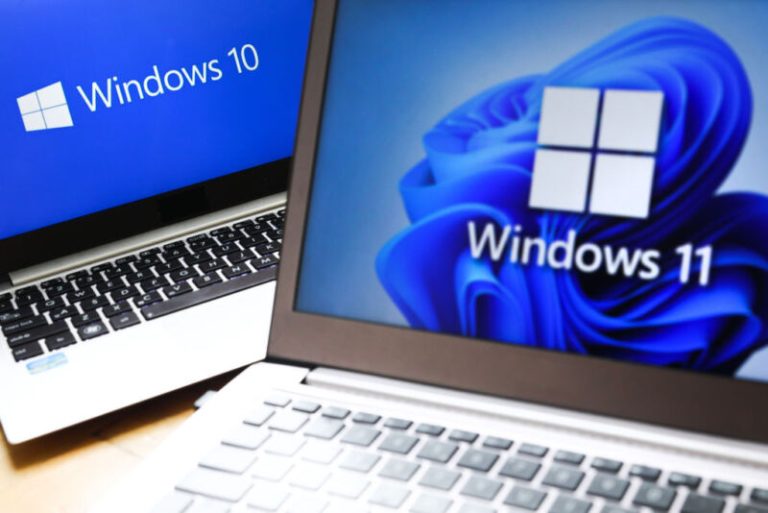To get a roundup of TechCrunch’s biggest and most important stories delivered to your inbox every day at 3 p.m. PDT, subscribe here.
Hi friends!
Welcome back to the Daily Crunch — it’s September 10, 2021. Alex Wilhelm returns next week, so this is my last day as the captain of this ship. Captain of the Daily Crunch. Captain … Crunch? Oh no.

Image Credits: evemilla / Getty Images
Things I’ve learned:
- Email newsletters are more stressful than blog posts because you can’t fix typos once they’re out (and now that I’ve mentioned it, Murphy’s law demands this newsletter will have 300% more typos ). [Ed. note: Not on my watch, Captain.]
- I have a weird tendency to not link to my own stories in this newsletter because it feels weird? (But I’m going to today, because I’VE EARNED IT. Also because it’s my birthday. Also because it ended up being one of our top stories since the last newsletter, so I probably should.)
- Alex is a much, much more efficient writer than I am. He gets this done in like a third of the time it takes me. This works well with my theory that, based on the amount of work he does in a day, Alex is actually three people.
Bye friends!
— Greg
The TechCrunch Top 3
- Apple will use Shazam to ID songs in DJ mixes: If a DJ mixes a bunch of songs into one big set, how do all the original artists get paid? Apple says the answer, at least for their purposes, starts with Shazam, which it bought back in 2018 for $400 million.
- JioPhone delayed: Google and India’s Jio Platforms have been working on a phone tailored for the Indian market, intending to launch it today. Alas, that’s not going to happen. In a very last-minute announcement, Jio says that global semiconductor shortages are behind the delay, and that two more months should let them leap that hurdle.
- Epic is shutting down Houseparty: Just two years after acquiring Houseparty for a reported $35 million, Epic says the party is over. It’ll be shutting down the video chat app in October, though bits of Houseparty DNA will remain — Fortnite’s cross-platform voice chat, for example, is based on Houseparty tech.
Startups/VC
- Mammoth, the unicorn: Mammoth Biosciences, a biotech company co-founded by CRISPR pioneer Jennifer Doudna, has blown past the billion-dollar valuation milestone. There’s literally zero chance that I’m going to be able to properly explain what this company does in one or two sentences, so check out Emma Betuel’s writeup for the breakdown.
- Supabase raises $30M: This one’s mine! Supabase is building an open source platform meant to automatically handle a lot of the annoying back-end work that comes with starting a new app project — the database, the API (and documentation!), etc. I’ve been hearing buzz about it constantly since it graduated from YC last year. Supabase just closed a $30 million Series A and is rolling out new features on the regular, all while being fully remote with a team distributed across the world.
- Snyk’s massive raise: Another company is raising an absolutely massive round at a mind-blowing valuation — this time it’s Snyk, which Ron Miller describes as a “Boston-based late-stage startup that is trying to help developers deliver more secure code.” It’s raising $530 million at a valuation of $8.5 billion. Meanwhile, I’m sitting here trying my hardest not to make any ’90s Nickelodeon references.
What China’s new data privacy law means for US tech firms
China’s first data privacy laws go into effect on November 1, 2021. Will your company be in compliance?
Modeled after the EU’s GDPR, the new regulations “[introduce] perhaps the most stringent set of requirements and protections for data privacy in the world,” writes Scott W. Pink, special counsel in O’Melveny’s Data Security & Privacy practice.
In a comprehensive overview, he explains its key requirements and compliance steps for U.S.-based firms that service Chinese consumers.
“American firms doing business in China or with companies inside China will need to immediately start assessing how this new law will impact their activities,” he advises.
(Extra Crunch is our membership program, which helps founders and startup teams get ahead. You can sign up here.)
Big Tech Inc.
- Microsoft buys TakeLessons: Another Microsoft acquisition! Just a few days after announcing it’s buying web-based video editor Clipchamp, MSFT announced it’s picking up TakeLessons. Based in San Diego, TakeLessons connects individual students with specialist tutors (both online and off) on topics like math, music, drawing and more. Given that Microsoft says over 100 million students use its Teams platform for school, it makes sense for it to dig a bit deeper on edtech.
- Judge says Apple must change App Store rules: Big shift in the Epic-versus-Apple legal battle royale this morning, with the judge declaring that Apple must allow developers to offer alternative payment options beyond Apple’s own in-app purchase system. Epic CEO Tim Sweeney says it’s not enough and that the company “will fight on.”
- Epic wants Fortnite back in the App Store in South Korea: Speaking of Epic-versus-Apple … South Korea recently passed a bill that will require Apple to allow developers to use their own payment systems. As such, Epic says it’s time for Apple to let it (and Fortnite) back on the App Store in the country. Apple says no, and that “as of now, there’s no legitimate basis for the reinstatement of their developer account.”
- What to expect from Apple’s event next week: It’s September, which means Apple is holding a big event. What will they announce — besides, if tradition holds, a new iPhone? Brian Heater has the roundup.
TechCrunch Experts: Growth Marketing

Image Credits: SEAN GLADWELL (opens in a new window) / Getty Images
We’re reaching out to startup founders to tell us who they turn to when they want the most up-to-date growth marketing practices. Fill out the survey here.
Read one of the testimonials we’ve received below!
Marketer: Mike Le, CB/I Digital
Recommended by: Tony Drockton, Hammitt
Testimonial: “In the two years of conversations I’ve only spoken to a few people that are so analytical and data driven. His unique in-house algorithms to scale spend have allowed us to maintain the hypergrowth (60%) that we’re on.”
Community
Join Danny Crichton on Twitter Spaces Tuesday, September 14, at 2 p.m. PDT/5 p.m. EDT as he discusses whether remote work will make H-1B visas redundant with Sophie Alcorn, a lawyer at Alcorn Immigration Law and guest columnist for “Dear Sophie” on Extra Crunch.






